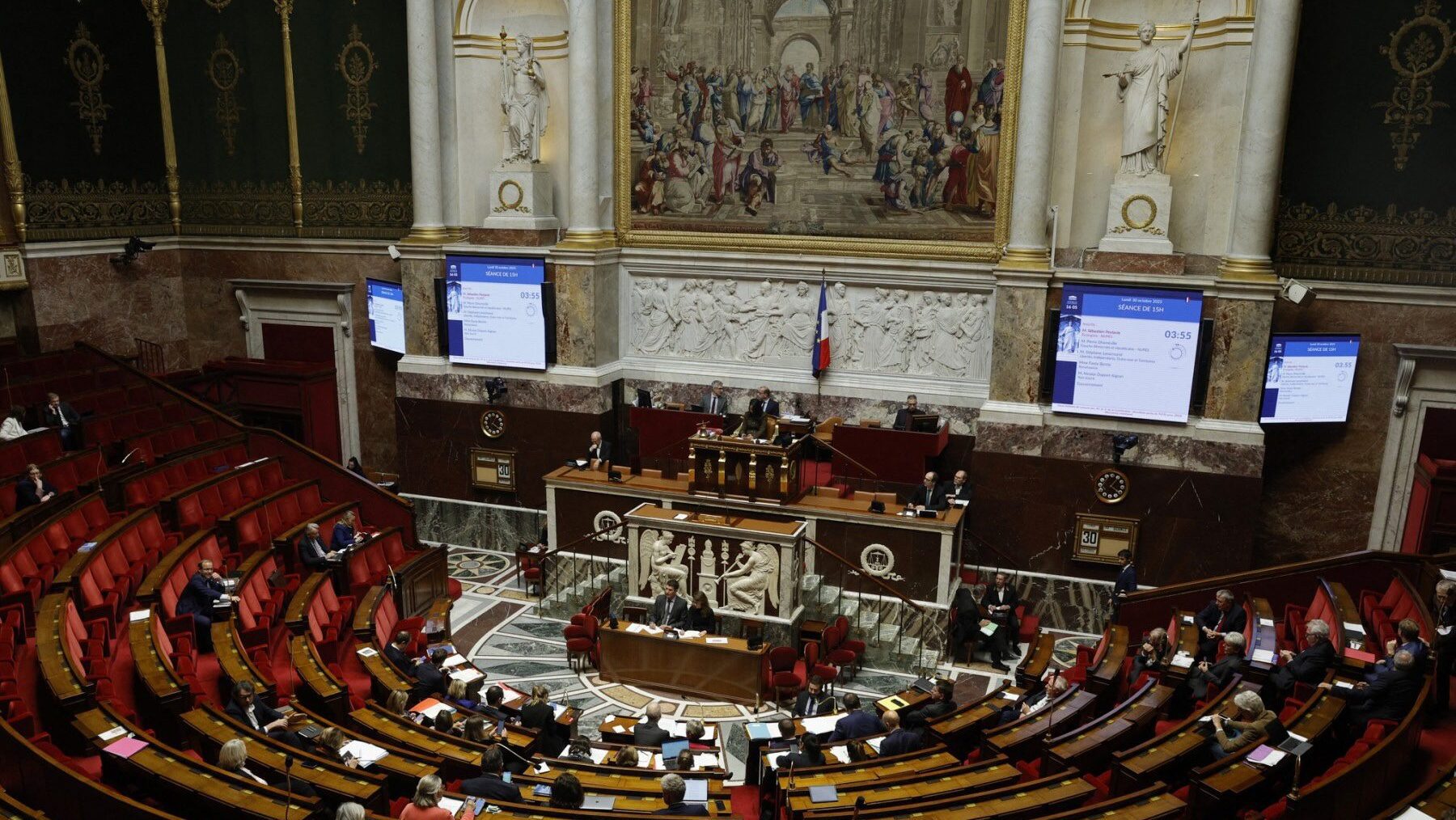
The French National Assembly during a debate on a vote of no confidence (“motion de censure”) about the social security financing bill for 2024, in Paris on October 30, 2023.
Photo: Geoffroy VAN DER HASSELT / AFP
Wednesday, December 4th is set to be the death knell for Michel Barnier’s government. In the afternoon, MPs are due to examine the motions of no confidence proposed at the start of the week to counter the government’s forced passage of the 2025 budget. The ad hoc alliance between MPs from the left-wing coalition and the Rassemblement National (RN) is likely to result in the adoption of the motion to bring down the government, plunging France once again into uncertainty.
On Monday, December 2nd, the prime minister set in motion the infernal machine of his own impeachment by using Article 49.3 of the Constitution to force through the budget in the absence of a majority of MPs in favour of his plan. The response, which had been expected for several weeks, was not long in coming: the left-wing coalition and the RN each proposed a motion of censure aimed at rejecting the budget and toppling the government.
These motions are due to be examined on the afternoon of Wednesday, December 4th. The first motion to be examined is the one introduced by the Left, which is expected to be adopted thanks to the combination of the votes of the Left and the RN.
The RN has chosen to support a text written by the Left, even though the terms in which the motion of censure was drafted clearly contradict its own political programme. For example, the left-wing motion criticises the Barnier government’s anti-immigration “obsession.” But for RN MP Jean-Philippe Tanguy, this is not the issue:
We are not voting on a text, we are voting on a motion of no confidence in the government. The text, which is not essential, is a device, window dressing to explain a position, that’s all.
This view is shared by La France Insoumise MP Éric Coquerel, chairman of the Finance Committee and a staunch opponent of the RN: “If the RN supports our motion, it is because it also believes that the Barnier government must be brought down,” he explained on the evening of Tuesday, December 3rd.
The RN also denies having played the one-upmanship game and asserts that, on the contrary, it has constantly revised its demands downwards.
Adoption of a motion of censure will lead to the fall of the Barnier government, which will nevertheless be able to remain in office for an indefinite period as a resigning government while a new team is put together. The same situation arose after the legislative elections, when Gabriel Attal’s resigning government was extended for more than two months before Barnier was appointed.
Emmanuel Macron has reportedly already started looking for a new candidate for the post of prime minister, without success so far.
Macron and Barnier have told the media that they “do not believe” that the censure will succeed. As for the calls for his resignation that are multiplying, the president considers them to be “political fiction.” In his latest speeches, the PM has pushed back against the prospect of censure with all his might, promising “chaos” in the event of its adoption—a rhetoric echoed at European level, with the mainstream press brandishing the spectre of looming danger for “stability of the euro zone”—a familiar tactic for putting pressure on an opinion to ensure that nothing changes.
